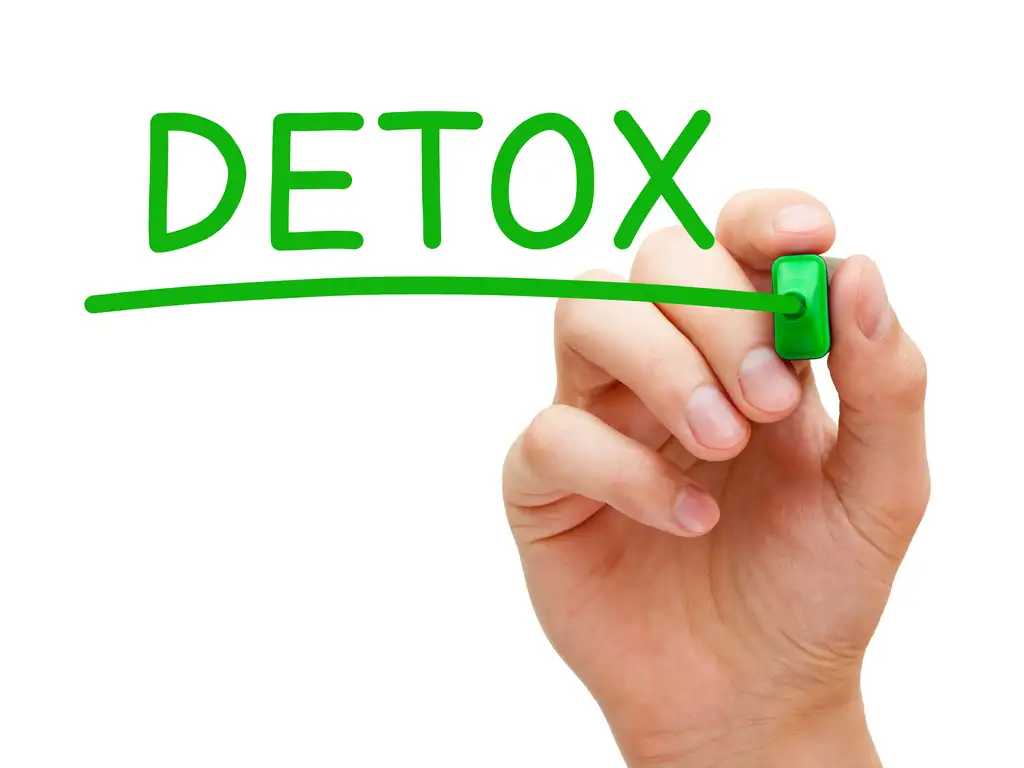It can feel overwhelming if you’re struggling with substance abuse and considering addiction treatment. But know that you are not alone. Addiction is a complex issue; many people have succeeded in their recovery journey by taking the first step to detoxify their bodies and mind in a medical detox center.
That’s why we’ve created this roadmap to understand the process to enter a medical detox as part of agreeing to addiction treatment. We believe that with the knowledge, support, and the tools necessary to choose the best approach to handling withdrawal symptoms, substance abuse can become part of your past with the rehab process from qualified treatment professionals guiding you to a promising future.
From understanding the drug detox process to accessing comprehensive care services, let the article offer guidance on the road to a healthier life without alcohol or drug addiction.
Turning Point of Tampa offers a comprehensive addiction treatment program and for those needing a medical detox setting to address withdrawal symptoms, note our substance abuse treatment has been helping people quit drinking and stop using illicit drugs and prescription drugs, and find lasting sobriety since 1987.
What Is a Drug Detox?
Drug detox is an essential first step toward recovery following excessive use of drugs or alcohol. Both drug withdrawal and alcohol withdrawal should happen in a medical detox setting where medical staff can supervise the withdrawal process. Trying a natural detox or going cold turkey can really cause acute withdrawal issues.
Medical complications can occur when a person begins to experience withdrawal symptoms. If medical intervention is necessary, it is best to have a medical professional available. Managing withdrawal symptoms can include supervised prescription medication to manage the physical symptoms a person may feel during the medical detox.
According to the Substance Abuse and Mental Health Services Administration (SAMHSA) Treatment Improvement Protocol (TIP), the measure of a successful medical detox is based on the person with drug dependence remaining in some form of substance abuse treatment.
How Long Does Detox Last?
If needed medical detox is typically started at the beginning of one’s continuum of addiction treatment. Based on the type of drugs or alcohol used, the amount of current use, and a person’s history of the drugs or alcohol used, the detox typically lasts 3 days up to 14 days.
Medical detox for an alcohol withdrawal is mush shorter than an opioid withdrawal. Delirium tremens also know as “DT’s” are very serious and happen from severe alcohol abuse.
Drug withdrawal symptoms from an opiate detox typically lasts 7 – 14 days. During detox, medical professionals safely oversee the patient’s medication-assisted treatment with prescription medications to keep them as comfortable as possible.
Turning Point of Tampa believes and supports a gradual under medical supervision and closely working with a treatment team.
Ultra rapid detox also known as ultrarapid opiate detox, claims to ease the process of opioid withdrawal. Ultra rapid detox has been very controversial with questionable and sometimes lethal outcomes. Similarly a rapid detox places a person under general anesthesia. Once the person is unconscious they administer medication to initiate withdrawal. To our knowledge this is expensive and not covered by insurance.
Detox From Drugs: The Process
The detox process varies from person to person depending on the type and amount of drugs used, as well as any co-occurring mental health conditions. Generally speaking, drug detox can be divided into these four stages.
1. Evaluation
Starting detox isn’t always the easiest decision to make. However, for patients taking that first step of committing to sobriety, a comprehensive evaluation is essential. This assessment digs into one’s overall physical and mental health, current living environment, risk factors, and history of drug abuse to determine what approach may work best in recovery.
Every assessment and evaluation includes the Diagnostic and Statistical Manual fifth edition (DSM-5) on substance use disorder. The medical detox evaluation also considers the presence of polysubstance abuse, a combination of two or more mind-altering substances, such as alcohol, addiction.
2. Stabilization
This stage ensures a patient’s physical symptoms and mental health are stable enough to progress further into recovery. This includes managing acute intoxication, addressing all substance dependence, severe withdrawal symptoms and cravings that may arise while providing medications as needed for relief.
Common withdrawal symptoms include:
- Insomnia
- Sweating
- Nausea
- Anxiety
- Depression
- Headaches
- Muscle pains
- Chills
- Tremors
- Flu-like symptoms
Of course, the symptoms vary depending on the type of drug and the amount used. Psychological-based therapies, including counseling, family therapy, and support groups, may be used alongside medications to ensure a comfortable transition into recovery from substance abuse treatment.
3. Preparation for Treatment
When the body is ready and stabilized, this stage focuses on preparing for treatment. This includes discussing different treatment options with a counselor or therapist who can provide advice and direction on which path might be best for each individual.
Inpatient rehab or outpatient detox programs may be best depending on one’s current situation and lifestyle.
4. Aftercare Planning
The detoxification process doesn’t end after treatment. To prevent relapse, it’s essential to have an aftercare plan that includes continued support and assistance in recovery. Aftercare planning may include regular therapy sessions, attending 12-step or other self-help meetings, and any referrals needed for additional resources such as housing and employment assistance.
Since fighting drug addiction is a lifelong process, having resources and people to talk to for support can make all the difference in remaining sober.
Benefits of Medically-assisted Detox in Addiction Treatment
Drug withdrawal is a dangerous and sometimes life-threatening process. When not done with the proper medical care and supervision, it could lead to unexpected death due to severe withdrawal symptoms.
Medical drug detox in substance abuse treatment programs is an invaluable resource that offers a safe and comfortable environment to get through withdrawal with monitored care.
Below are the benefits of medical supervision when one detox from drugs includes:
Safety
A medical drug detox’s most significant benefit and priority is ensuring the patient’s physical and mental health remains safe throughout during drug withdrawal symptoms. This may include administering medications or other necessary interventions to reduce the severity of specific symptoms.
Moreover, when done with the help of a medical team, the risk of adverse complications associated with drug and alcohol withdrawal is low.
Comfort
You can reap the immense benefits of 24/7 watchful care and support by attending a medical detox in either a hospital or a dedicated detox within a substance abuse treatment center. With constant access to medical team members, once can achieve a state of ease and comfort with their attentive presence.
Reliable Support
Mental disorders and addictions are often multi-faceted illnesses that can be difficult to manage alone. With a medically-assisted detox, you don’t have to worry about enduring withdrawal symptoms alone.
You’ll have reliable support from the medical team throughout each step of the process. Whether you need a therapist or an addiction specialist, someone will be available to help you through the difficult moments.
5 Tips About Drug Detox and Addiction Treatment
If you are ready to make a change in your life and start the process of getting sober, we’ve outlined five tips to get you started.
1. Understand Your Addiction and Learn the Facts About Substance Abuse
Understanding your addiction is the first step in overcoming it. Educate yourself on the facts about substance abuse, from causes to signs and symptoms to treatments. Doing so will help you gain better insight into your behaviors and provide knowledge to help you recover. Take action now by learning all you can about addiction and its personal and societal impact.
You can start by understanding why some people develop addictions, what bad habits signify potential problems, and the treatments commonly used toward recovery.
2. Acknowledge That You Need Help and Find a Qualified Substance Abuse Treatment Center
The most crucial step is to accept that you need help to achieve sobriety. Treatment centers provide much-needed guidance and resources toward addiction recovery. Researching the alcohol or drug rehab for you is essential, as each offers different treatment regimens and therapies.
At Turning Point of Tampa, we are a family-owned facility that specializes in assisting individuals struggling with severe addictions, mental health disorders, and eating disorders. Our goal is to provide the necessary guidance and support needed to break free from habits and dramatically transform lives for the better.
From eating disorders to substance abuse and mental health concerns, we offer a variety of programs. Including traditional therapies coupled with the 12-step approach, we emphasize individualized treatment plans and supportive environments to ensure that each substance dependence is addressed and a person’s recovery journey has begun on solid footing.
3. Learn Healthy Coping Mechanisms
To complement individualized recovery plans, activities like yoga, meditation, writing in a journal, or engaging in exercise can also increase prospects of healing. Such techniques are essential to decreasing anxiety levels while participating in the recovery process.
4. Build Support Networks
Creating a support network is critical for managing stress or difficult times. It is essential to foster relationships with individuals who can offer you understanding and reassurance as you battle common challenges.
There are a variety of tools that could be beneficial. For example, counseling with professionals provides reliable assistance in dealing with emotional disturbances or mental health issues. If attending such sessions seems inspiring, consider exploring a 12-step program such as Alcoholics Anonymous (AA) or Narcotics Anonymous (NA). They have proven to be highly effective peer support models within a larger community. People have succeeded in these programs and recovered by utilizing the connection capabilities available through these remarkable resilience frameworks.
5. Take Care of Your Mental Health
Setting aside time to care for one’s mental health is essential for overall well-being. Regularly prioritizing self-care helps prevent potential relapses and ensures one stays on the right path.
To combat any present or future difficulties, try finding de-stressing activities that induce calmness, such as exercising in nature or participating in art therapy.
Eating a nutritional diet and engaging in regular cardiovascular activities can positively affect physical and mental health. External sources of help are just as important; depending on what works best for you, try leaning on friends and family for words of strength or find certified professionals with nutrition and mental health knowledge.
Turning Point of Tampa’s Drug and Alcohol Detox Program Helps Those Recovering From Addiction
If you or your loved one is considering a substance abuse treatment program that includes a drug and alcohol detox, Turning Point of Tampa in Florida is a great place to start. Here’s what makes us stand out from the rest when it comes to inpatient drug detox.
Licensed Inpatient Treatment Facility
Our facility is a Level III.7D Medically Monitored Inpatient Detoxification Program, classified by the Substance Abuse and Mental Health Services Administration as one of its five levels of care available.
Our program stands out from Level III.2.D programs by providing around-the-clock medically supervised detox services to guarantee your comfort during the process and ensure medical treatment throughout the periods of detoxification and rehabilitation if required afterward.
This means that we are staffed with 24-hour medical professionals, certified counselors, and therapists and have access to psychiatrists to provide the best treatment possible.
Moreover, we are proud to provide ASAM level 3.7 WM (withdrawal management) services licensed by the Department of Children and Families (DCF) and accredited by the Joint Commission — the most widely used set of guidelines for quality assurance in detox programs. Our certification allows us to offer improved care for our clients within this setting.
We are an In-Network Provider with the Majority of Insurance Providers
We partner with many insurance providers as an in-network, pre-contracted provider for drug detox and substance abuse treatment. Our knowledgeable intake staff is prepared to ensure we can identify the correct coverage available with each patient’s health plan.
This initial step — call us to ensure we are the right facility for you.
From there we can discuss if your insurance coverage allows substance abuse treatment. An expert staff member will contact your insurance provider to identify your coverage and update you if there is any financial co-payment for treatment services.
With our assistance, you can start your path to recovery with the certainty that you have the financial means to follow through.
Turning Point In-house Programs and Treatment Services
At Turning Point of Tampa, we provide a variety of in-house programs and treatment services tailored to meet our patient’s needs. These include:
- 12-Step Programming
- Dual Diagnosis
- Substance Use Disorder
- Alcoholism
- Opiate Detox
- Eating Disorders
- Food Addiction
- Veterans Addiction Treatment Program
Our comprehensive selection of services will assist you or a loved one who needs to break away from addiction and live a lifestyle free of the burden of substance use.
What Makes Our Drug Detox Program Different?
At Turning Point of Tampa, we provide our patients with top-tier addiction doctors to help manage withdrawal symptoms.
Our team of skilled doctors carefully guide our medically supervised detox to ensure our patients achieve their goals.
Our beautiful private campus, which we affectionately call “The Village,” houses our detox center, as well as other residential services and is the perfect place to begin the journey toward a healthier and more fulfilling life.
Moreover, detoxing can be challenging, so our team employs various techniques to make it as comfortable as possible.
Sources:
https://www.ncbi.nlm.nih.gov/books/NBK64119/
https://store.samhsa.gov/sites/default/files/d7/priv/sma15-4131.pdf









